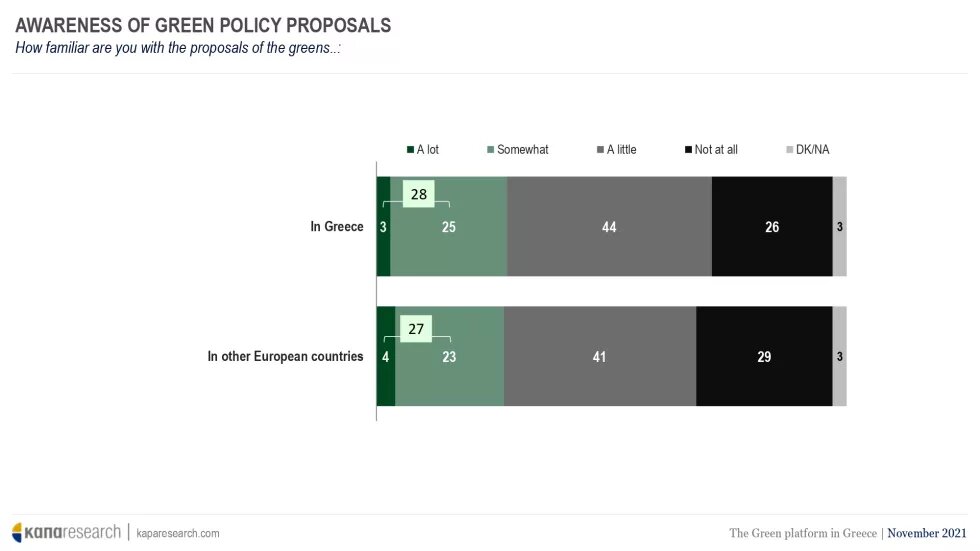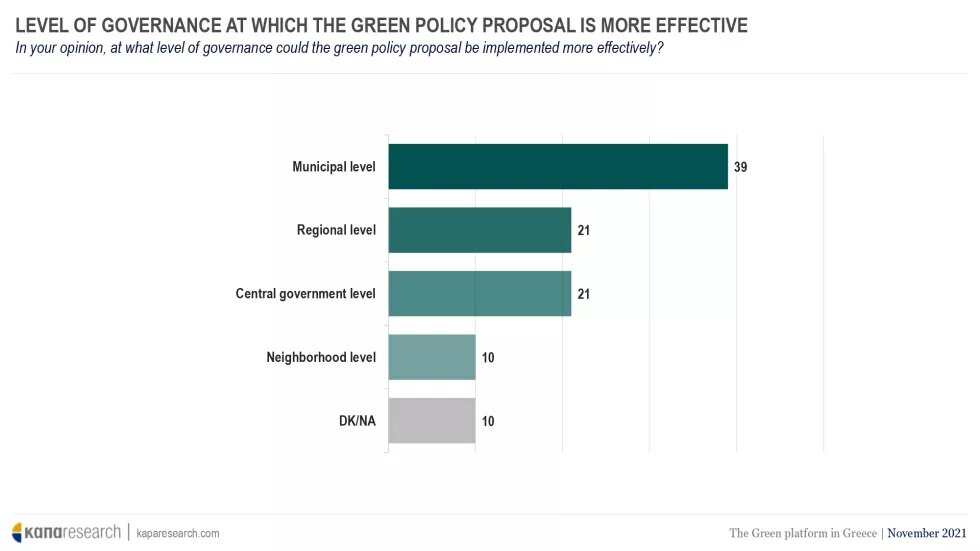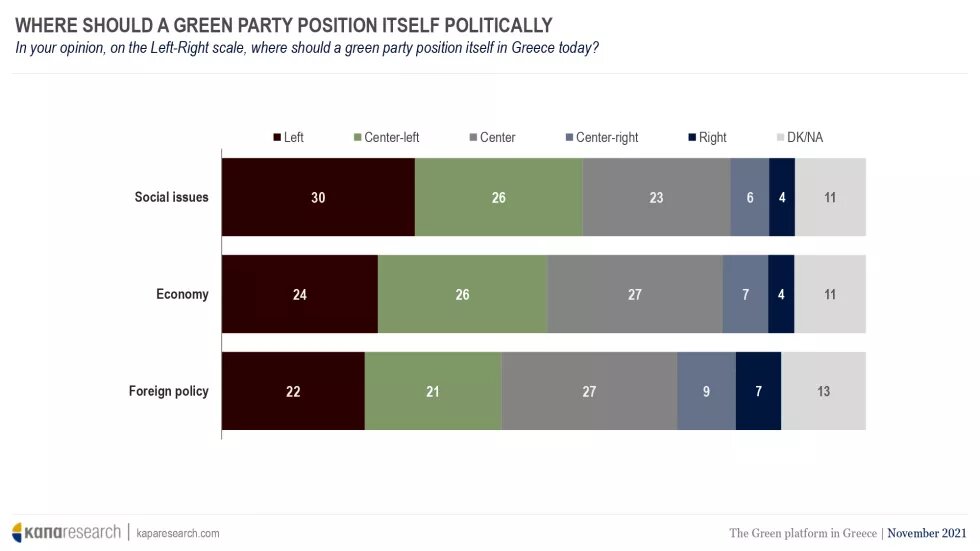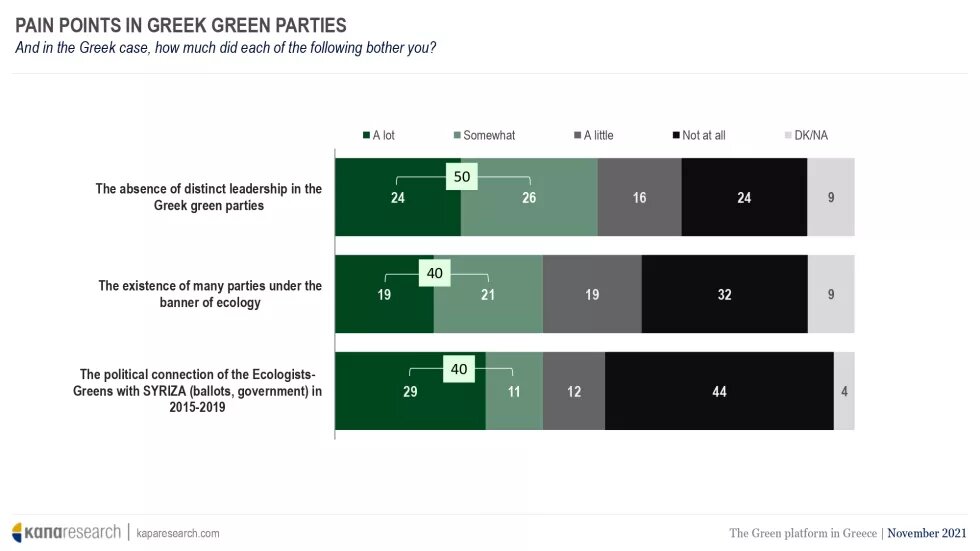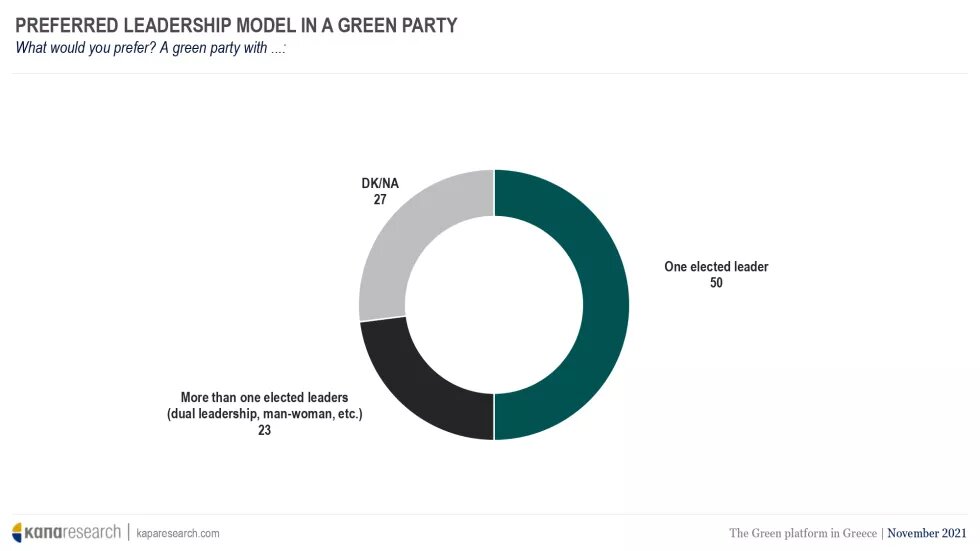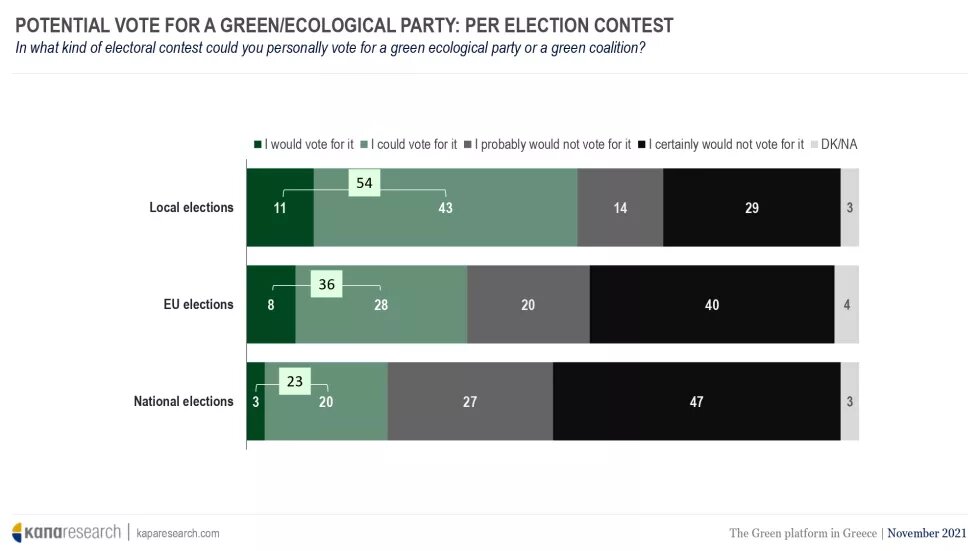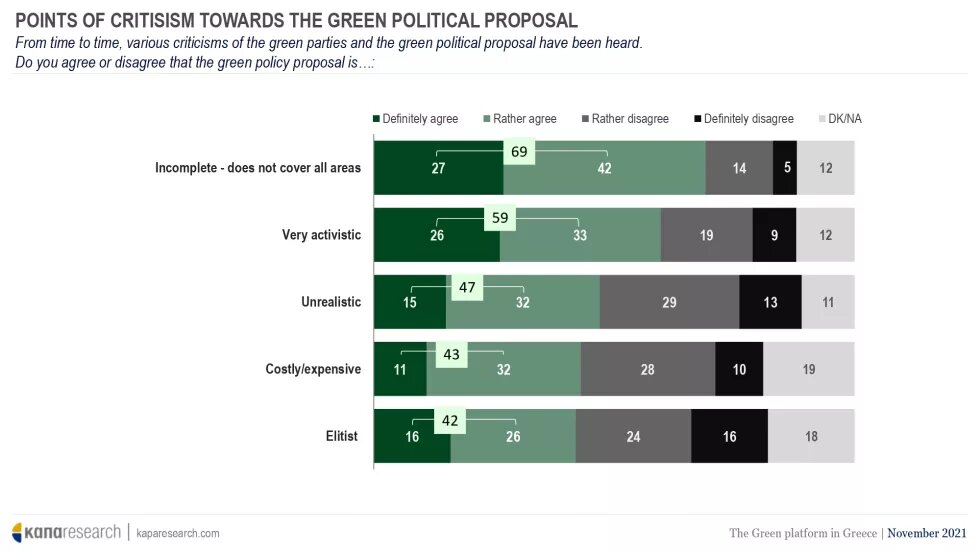
At a time of increased environmental, economic and social problems on the planet, the alternative political proposal of the Greens appears to have a broader appeal in the electorate of several Western countries – both at local and national level. However, the same is not the case in Greece, where the political expression of the Green parties remains weak. To investigate this phenomenon, we conducted a nationwide public opinion survey in November 2021 with a qualitative and quantitative component, in collaboration with Kappa Research.

Some of the main findings that emerged from the survey are that the green political space is mainly or exclusively identified with ecology and environmental issues, while its proposals on economic, social and political issues remain unknown to citizens. Local government is seen as a privileged field for the Greens, while the selection of a Green party in national elections is seen as a protest vote. Finally, the Green space probably needs delineation in relation to other parties on the left and centre-left, and a leadership form is needed to enable it to exist in a party system where personalities play a dominant role. In more detail:
Key findings from the qualitative survey
- The biggest problem at the national level is the economy and at the level of the local community all the elements related to the daily life of the citizen.
- The relations of the citizens with their political representatives are governed by pragmatism in a ‘faded’ ideological background, or by widespread disappointment, disaffection and suspicion.
- Neither the environment, nor the climate crisis arise spontaneously as problems in the discussions. Climate change itself is either still invisible, or is viewed with scepticism.
- The green ideology is considered an ‘ideology-umbrella’, while elements of it are detected in all parties. However, the criticism to the party programs is that of superficial treatment, lack of knowledge and green education or opportunistic treatment for the purpose of attracting voters.
- No green/ecological party has managed to create a distinct space in the Greek political spectrum with a well-defined ideology, notable people and powerful symbols. Voting for an ecological/green party almost always had been a vote of protest.
- There is room for a change of ‘fate’ for the ecological/green parties in Greece with the following conditions:
a. The abandonment of the ‘single-issue’ ecological character and the formulation of proposals addressed to many, different and often competing groups of Greek society.
b. The political representation of the new generation which has no strong ties to the two-party political system, is more aware of environmental issues, and have a cross-national perception of reality.
c. The adoption of a new leadership model that will be based on knowledge and on individual track record.
Key findings from the quantitative survey
- The environment raises public awareness - albeit in the form of concern - above 80% and belongs to the high values of politics, but it still fails to be expressed in a political proposal equal with its significance. Thus, the existing green proposal is generally considered incomplete, an activist case, unrealistic, one that can also be expensive or even elitist.
- Almost 7 out of 10 respondents ignore the positions of the Greens in Greece and Europe.
- The positions of the Greens are perceived to cover purely environmental issues and touch very little upon foreign and defense policy, on social issues or on issues regarding democracy and its institutions. The economy - the country's biggest problem for all survey participants - seems to be off the green agenda.
- The green political proposal is considered to fall more under the topic of local administration and less under that of central governance. For this reason, the majority could vote for a green party in municipal elections, less in European elections and much less in national elections.
- The current Green trend in European politics, which has been growing in recent years, is estimated to be difficult to impact Greek politics.
- The green vote in Greece is still considered a protest vote, with disloyal and temporary voters dissatisfied by the ruling parties.
- Those who are interested in the political field of Ecology are not insignificant numerically (more than 4 out of 10), are located throughout the territory, they belong to all levels of education, all economic and social classes, but differ in their ideology: ecology belongs more to the Greek Left or the Center-left.
- It is necessary to define the limits of the green political space.
- A modern Greek ecological party should seek leadership - not in collective or dual leadership schemes, but in a person with knowledge, and a proven track record in the field of ecology, a person credible outside the political establishment, as well as willing to be exposed to the media.
At the bottom of the text you can access the detailed report of findings from both the qualitative and quantitative research.
